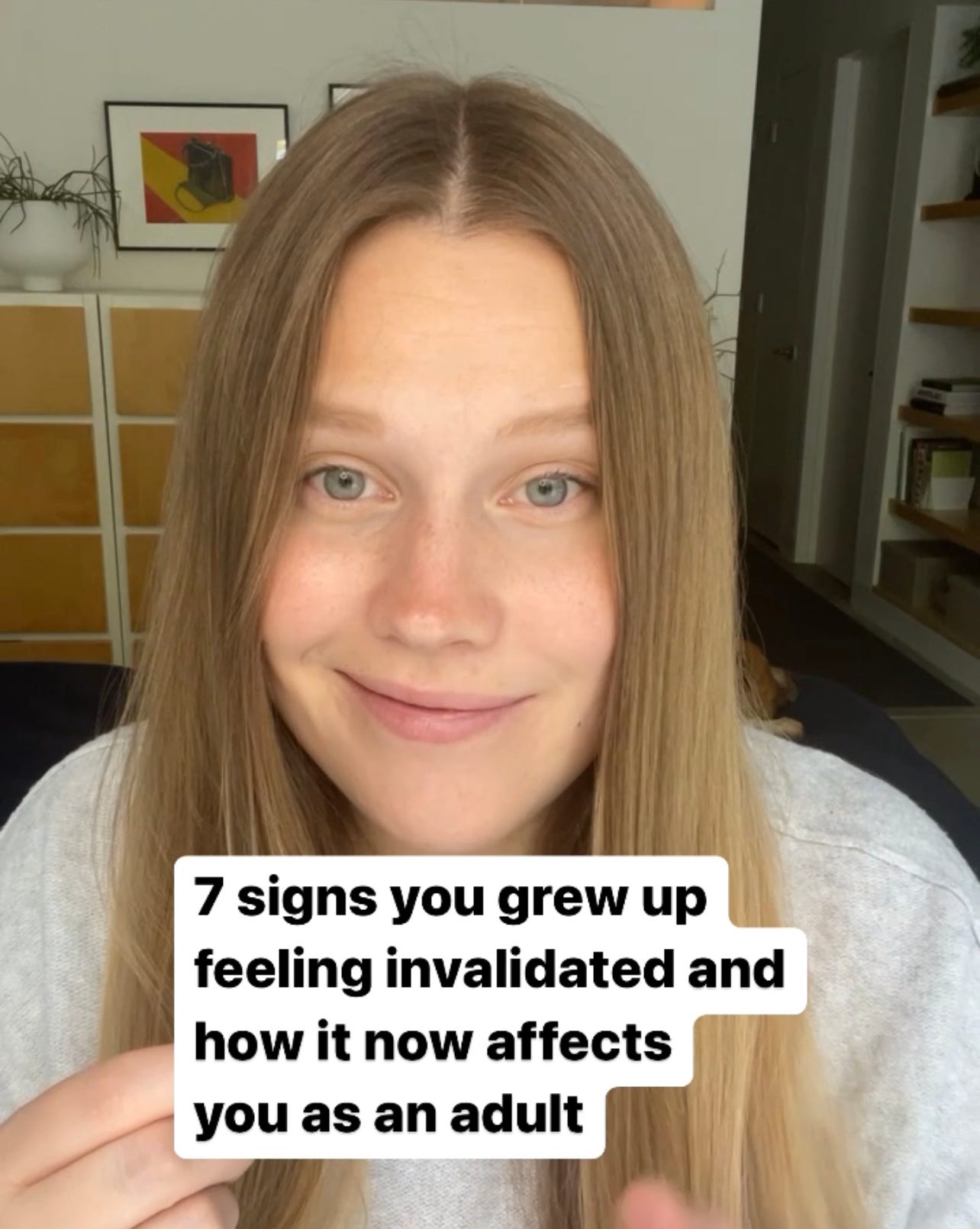The Lasting Effects of Feeling Invalidated: How Childhood Experiences Affect Us as Adults
Understanding the Negative Consequences of Invalidation, Behaviors We Adopt, and Tips for Self-Reflection and Healing
Growing up feeling like we don't matter can hurt our emotional and mental health in the long run. It can cause a person to suffer from low self-esteem, have trouble trusting themselves, and stay in unhealthy relationships (family, friendships, and romantic partners).
This article will explore how feeling invalidated as a child affects us as adults, the negative consequences of feeling invalidated, and the behaviors we picked up due to feeling invalidated growing up.
I will also provide you with self-reflection questions to help you think about the times you've felt invalidated in the past and uncover how those experiences might still affect you now as an adult, as well as tips on how to stop invalidating yourself.
What makes us feel invalidated?
Growing up, we depend on the adults in our lives to care for us and make us feel good about ourselves as we explore the world. When our feelings and thoughts are frequently brushed aside or ignored, it negatively affects our mental health and even extends into adulthood unless they are addressed and resolved.
As children, we can feel invalidated in many ways. We don't have the capacity yet to rationalize and therefore take things personally, often believing something is wrong with us. This often happens when you're consistently invalidated by being negatively compared to others, not heard, or punished for expressing yourself, severely affecting your self-esteem and self-worth.
This also negatively affects our relationships, work, and overall life satisfaction. That's why it's so important to understand what feeling invalidated looks like and to become aware of how past experiences in which you felt invalidated affect you now.
Here are some common examples of what makes us feel invalidated growing up (also applies to adult relationships):
Being told to toughen up: When we are consistently told to stop crying or to "man up" when we're upset, our parents are basically telling us to ignore our feelings. This can make us feel like our feelings don't matter, and we may learn to hide them so we won't be ignored.



